Home in Rome after Summer in the Salento
After a few months on the road, I'm finally back to scribbling.
My apologies for the radio silence. Summer happened. Many thanks to those who have been in touch, questioning my whereabouts. I’m now back at home in Rome, with my pencils sharpened and ideas buzzing for this newsletter.
I’ve also been working on my book of essays, loosely titled “I’ll Behave Later.” I’m half-way through revising the 25 chapters I’ve written to date, and aim to finish the book by June 2024. May this actual missive, and all of you reading it, serve to hold me accountable to that very deadline. I’ll only keep writing if I know I have readers.
Over the past three months, I’ve been on the road — from the USA to Italy, in Maine and in Puglia — where I’ve collected material to share.
In both places, I’ve been a mother, wife, daughter, sister, aunt, daughter-in-law, travel agent, cross-country driver, cook, ATM, tutor, photographer, dish-washer, housekeeper, dog-walker, book-worm, laundress, and translator. I may have initially envisioned my summer as relaxing but, ultimately, found it a wee bit exhausting. Summer will always be my favorite season. But, I must confess that I now crave the routine that summer eclipsed.
My kids are lucky to have all four of their grandparents alive, well, and eager to host them on holidays. We’ve never sent our kids to sleep-away camp because they have the great fortune of attending what I’ve come to think of as Family Camp, in both Maine and in Puglia. In years when we are not living in either of our respective countries, our homelands serve as personal charging stations for our traditions. In both places, my husband and I have family that has been spending summers in the same spot for four generations (mine is actually five!).
In this missive, I’ll tell you about Puglia. In the next, I’ll get to Maine.
If Camp Puglia were to have an advertisement blurb, it might read like this: Where aunts and uncles are counselors, and cousins are bunkmates. Where grandparents love you unconditionally even when you wake up late and rarely make your bed. Where you devour taralli, friselle con pomodoro, and orecchiette con cima di rapa. Where unconsciously, you say goodbye to meat, and devour vegetables and fruits from local stores cultivating their products in back yards, and fish caught in local turquoise waters. Where dinner is always with at least 15 people, and few restaurants bat an eyelash when you call to make a reservation for at least a dozen. Where interrupting is a way of survival at the dinner table, and you shout to be heard. Where it’s late to bed and late to rise. Where you swim, eat, rest and repeat, every single day, in multiple cycles, in smaller groups, like a pack of penguins. Where the dress code is a bathing suit and flip flops for most of the day. Where you often bathe in outdoor showers under an olive tree. Where dressing up for dinner means putting on a pair of earrings or a wrinkled linen shirt. Where you dance the pizzica in piazza, play in family soccer matches or round robin tennis tournaments with enough cousins to make up multiple teams. Where you play cards (Scopa, Burraco or Uno) by candlelight. Where no one is ever too old to play hide and go seek in an olive grove. Where Italian is the lingua franca but sideline chats happen in English, French, German and Russian. Where there’s always room at the table for visiting friends. Where days are disorganized, chaotic, and always amusing. Where you arrive tense, and you leave relaxed. Where you miss those no longer with us but carry on the magical traditions of all this for them.

About twenty-five years ago, one hot, sticky night in August, my husband, his sisters and I were driving through a small town in the Salento region of Puglia with the windows rolled down. Waiting for the traffic light to change as we stewed in oppressive heat, my sister-in-law gasped and begged us to listen.
My husband parked the car immediately on the curb in front of a fire hydrant (obeying sisters in Italy rules over parking regulations). The siblings ran towards the hypnotic music like elementary school kids, limbs flapping and hair falling out of place, while I nervously skipped behind as the new girl not quite understanding the game.
The still night's zephyr summoned a musical wave of nearby jiggling tambourines, wailing voices, rhythmic drums and accordions that set the scene for la pizzica, the dance traditionally performed in Puglia as a mythical reenactment of a woman bitten by a tarantula. As a way of ridding the insect's poison, this lyrical, non-secular ritual, legend says, eradicates evil spirits. In strappy, leather sandals and flowing skirts, women with charcoal-colored curls and espresso-tinted skin jumped from one foot to the other in a seemingly choreographed, sensual version of hopscotch. Lying on the ground, the stricken woman bent her knees and raised her pelvis heavenward in a yoga bridge pose. Some say it looks sexual; others think it looks exorcistic. (Several years ago, film director Edoardo Winspeare turned it cinematic in his film La Pizzicata.)
To my own ears, listening for the first time, the sound was more cacophonous than melodious, like kids banging on pots and pans. It was a long way from the New England hymn-sing-alongs around the Steinway that resonated throughout my childhood. To my Italian family, it was alluring and magical: the theme song of their childhood summers.
Today, whenever I hear the distinctive caterwauling of the pizzica, I know it’s summer. My own kids now dance the Salento jig which they have picked up from locals, and pass on their moves to others.
The Salento region (from Brindisi down to the heel of Italy’s boot) is a long way from the canals of Venice and the stones of Florence. It’s about an eight-hour drive (with traffic) from the ruins of Rome. On clear days, you can see Albania. Often, your cellphone service automatically switches over to Greece. Here, my Italian family's history is carved into the olive trees that dot the red soil of its fertile terrain.
This past summer, on a random Monday night in August, the entire family, in residence in multiple houses scattered around town, met for dinner at a local friggitoria on the town’s port. It wasn’t for any particular occasion such as a birthday or a wedding. We were celebrating togetherness. One cousin called it a “rave di famiglia.” There were 47 of us. And, there were actually many missing! If we had added more, we would have fallen into the neighboring waters of the port.
After spending a portion of the past twenty-five summers in Salento, I am now etching my own family history in its olive trees as I show my own children a layer of Italy's beauty that still, magically, feels like undiscovered country. Its allure stems from its distance from a major metropolis, its fresh fish, fruits and vegetables of the Mediterranean, and its coastal, rocky terrain bordering crystalline waters for soothing swims. Its slower rhythms recall a lifestyle of another era.
It takes all of us at least a week to downshift. The weather helps, often governed by a scirocco, a humid, Southern heat which cripples everyone to afternoon naps. Years ago, summer days without plans drove me crazy, making my New Yorker knees twitch. Outnumbered in my Puritanical thinking of feeling I should always be doing something, I eventually tossed my Filofax into the sea, packed a suitcase of books, and embraced falling asleep for a couple of hours every afternoon. Food shopping happens either early in the morning (which means 9:30am) or late afternoon (any time after 6pm), and dinner doesn’t start until 9pm. You nap because why wouldn’t you when the entire region is doing the same (local stores are shut down from about 1-5pm). After all, swimming (translation: floating) and eating (translation: pigging out) make everyone drowsy (translation: knocked out and snoring after lunch). Buona notte.
The kids pick up the local seaside etiquette of the warm Pugliesi people: how to offer a hand to strangers exiting from occasional rough waters onto slippery rocks; how to toss flippers to someone in the race to take a plunge; and how to greet strangers with kindness and grace. Together with local farmers or fishermen, we’re all the same fish swimming in Salento's salty, crystal-blue sea as we bob along the coast like buoys, and sun ourselves perched on rocks like seagulls. I’ve never seen a lifeguard at any of the swimming spots we frequent in the Salento — but it’s understood that everybody would jump in for anybody in need.
After the first week of kicking the addictions of urban living, the outdoors becomes the adults' living room and the kids' playroom. In their younger years, the cousins used to build forts, swat bees, trap salamanders, collect olives or figs, hunt sea urchins in grottoes or crabs in salt beds, and use their imagination in ways that city life restrains it.
During the August weeks, my now teenage kids hang out with approximately 20 teenage cousins, ranging in age from 13-19, all of whom flock to our port town for at least two weeks every summer. There’s someone for everyone, and these kids who live in various cities throughout Italy, Europe and America find solace in the familiarity of finding each other over and over again, every summer, practicing il dolce far niente.
They all meet up at the local port after dinner around a fuse-ball table, outside of the port’s food shop which sells rustici (gooey tomato and mozzarella pastries) by day and gelato, gassosa (lemon soda) and beer by night. As of now, not one of these teenagers drives. Next year, one is sure to put an earned driver’s license to practice. But, up until now, kids walk most places safely — even though, an occasional late night party or concert at a discoteca turns us into counsellor-chauffeurs.
After a couple of weeks in Salento, my city demeanor floats away like seaweed. My hair runs wild and wavy, my eyes reveal their wrinkles without make-up, and my feet finally breathe. I swim my backache away, and I usually read about five books.

Every August 10th, the day of San Lorenzo, we almost always find ourselves in Puglia. It’s the day in Italy when the dark sky glitters its galaxy, and it’s likely you’ll spot shooting stars. My husband recalls sitting on top of a Pugliese pajara (the local stone-constructed huts that are close cousins of a trullo) as a child with his late maternal grandmother, and spotting The Big Dipper. Now, my kids have formed similar memories with their own grandparents. Almost every year since the kids were born, we all collectively sit on beach chairs on the family trullo’s outdoor terrace and scour the sky for constellations. It’s the only moment in the entire vacation when there’s silence. There’s reverence for those wanting to make a wish.
In Puglia, the Wifi is always spotty in our seaside haven. But who really wants to connect with the outside world when all we really need is to reconnect with each other? The only streaming I want to watch while on vacation in Puglia is my kids growing up and interacting at Family Camp. It’s always worth the road trip.





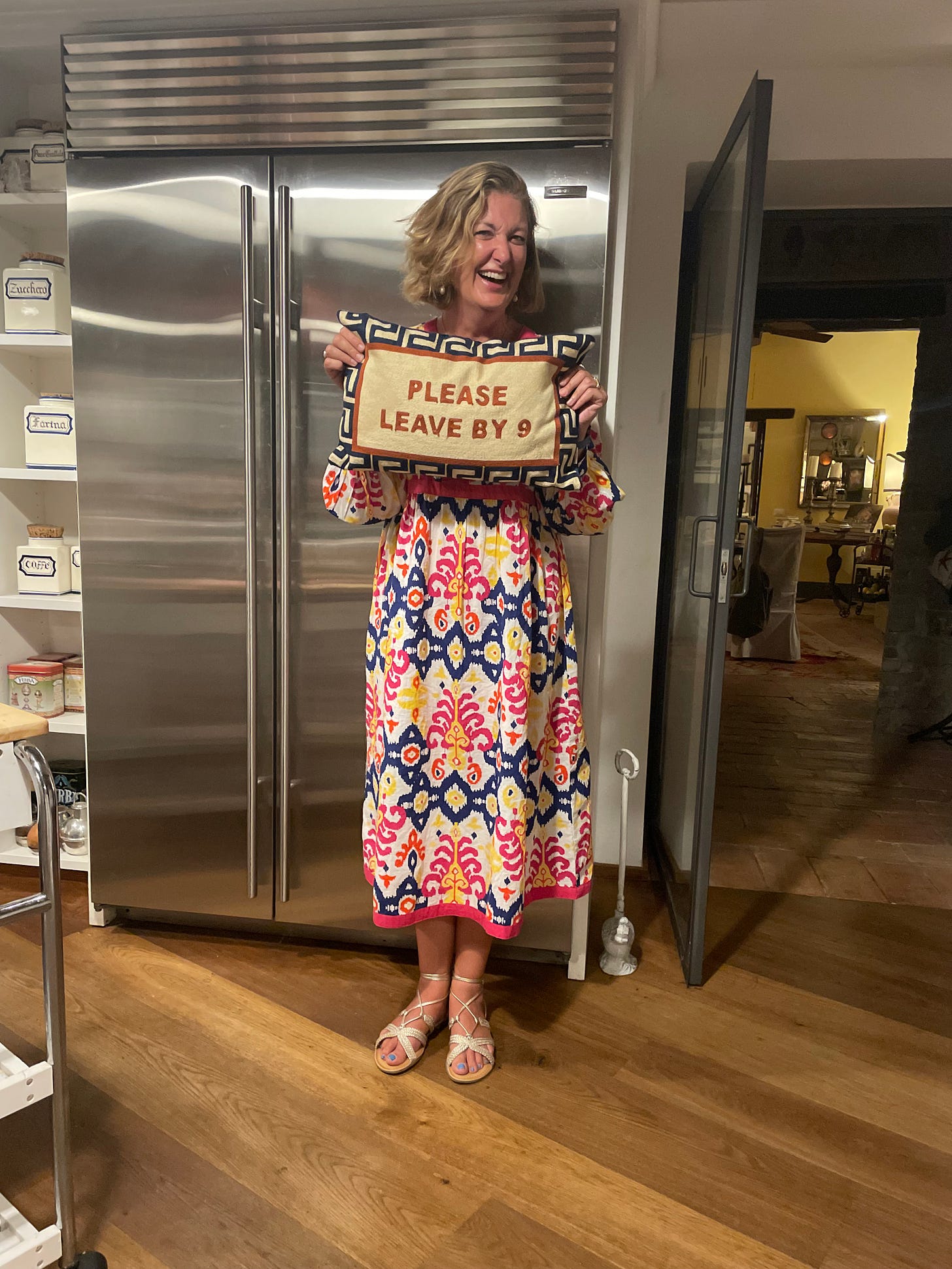

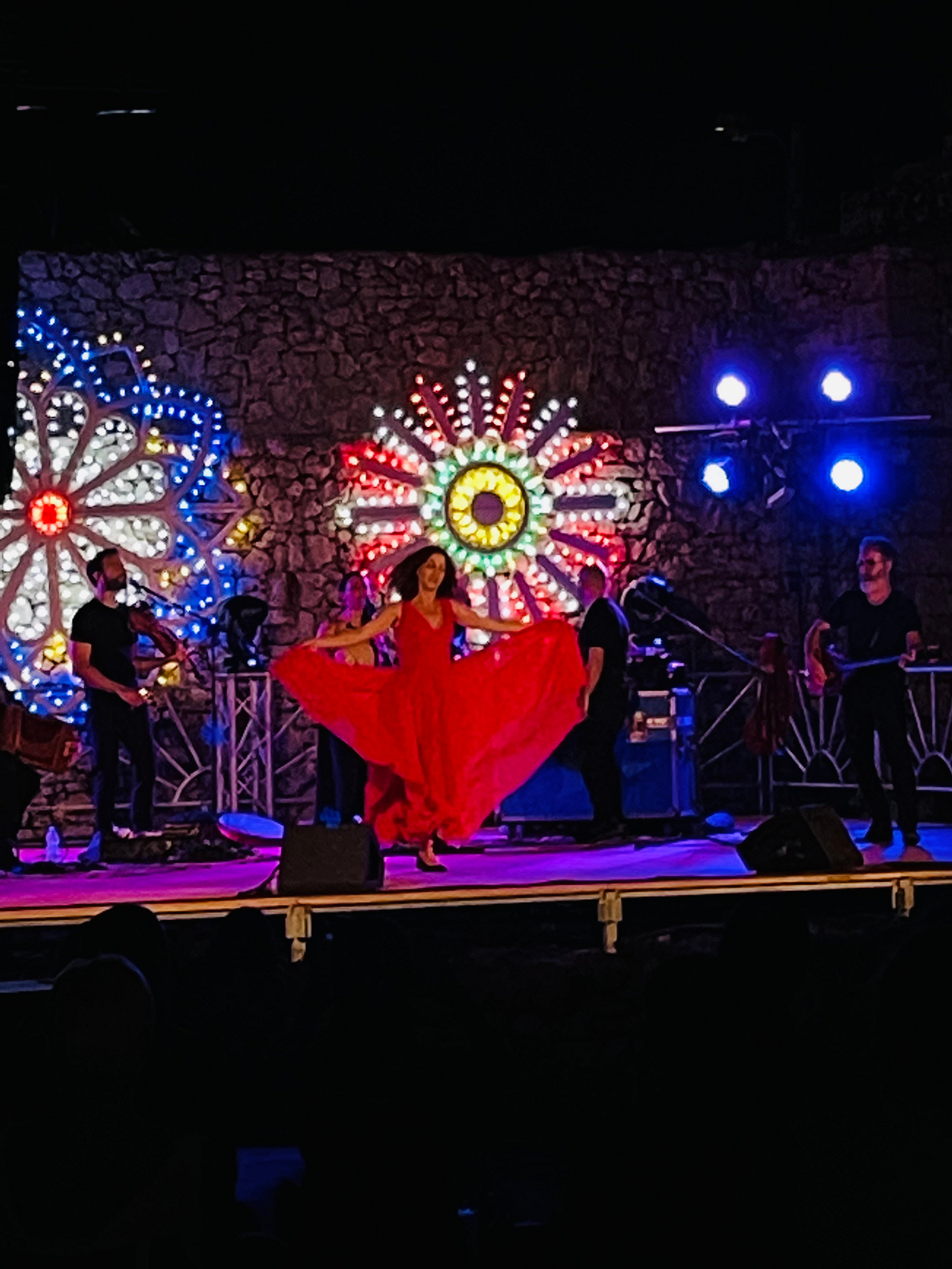

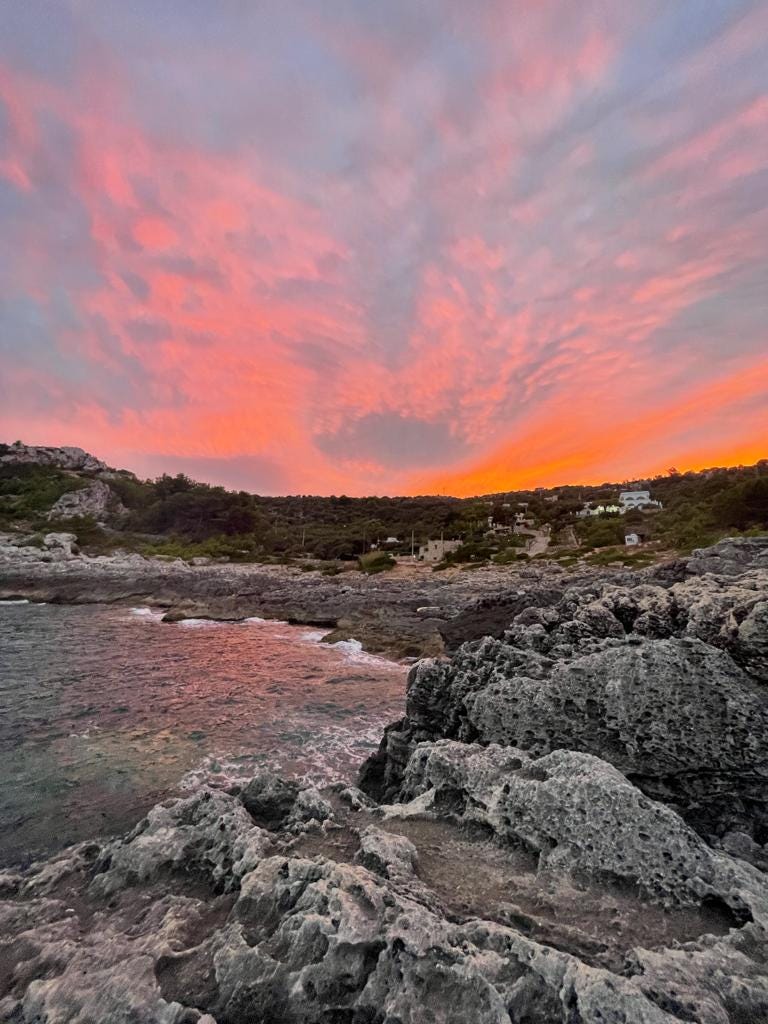


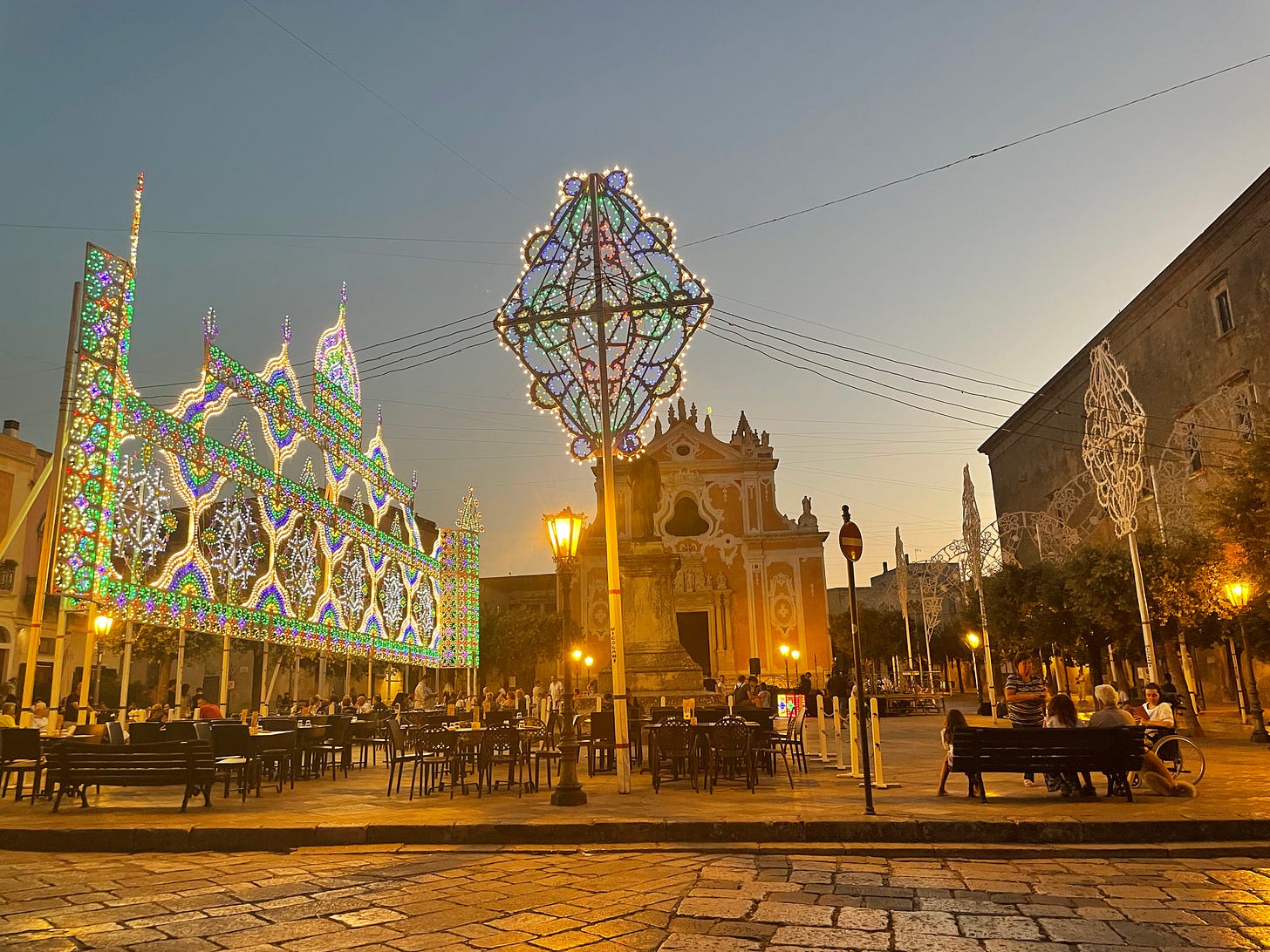
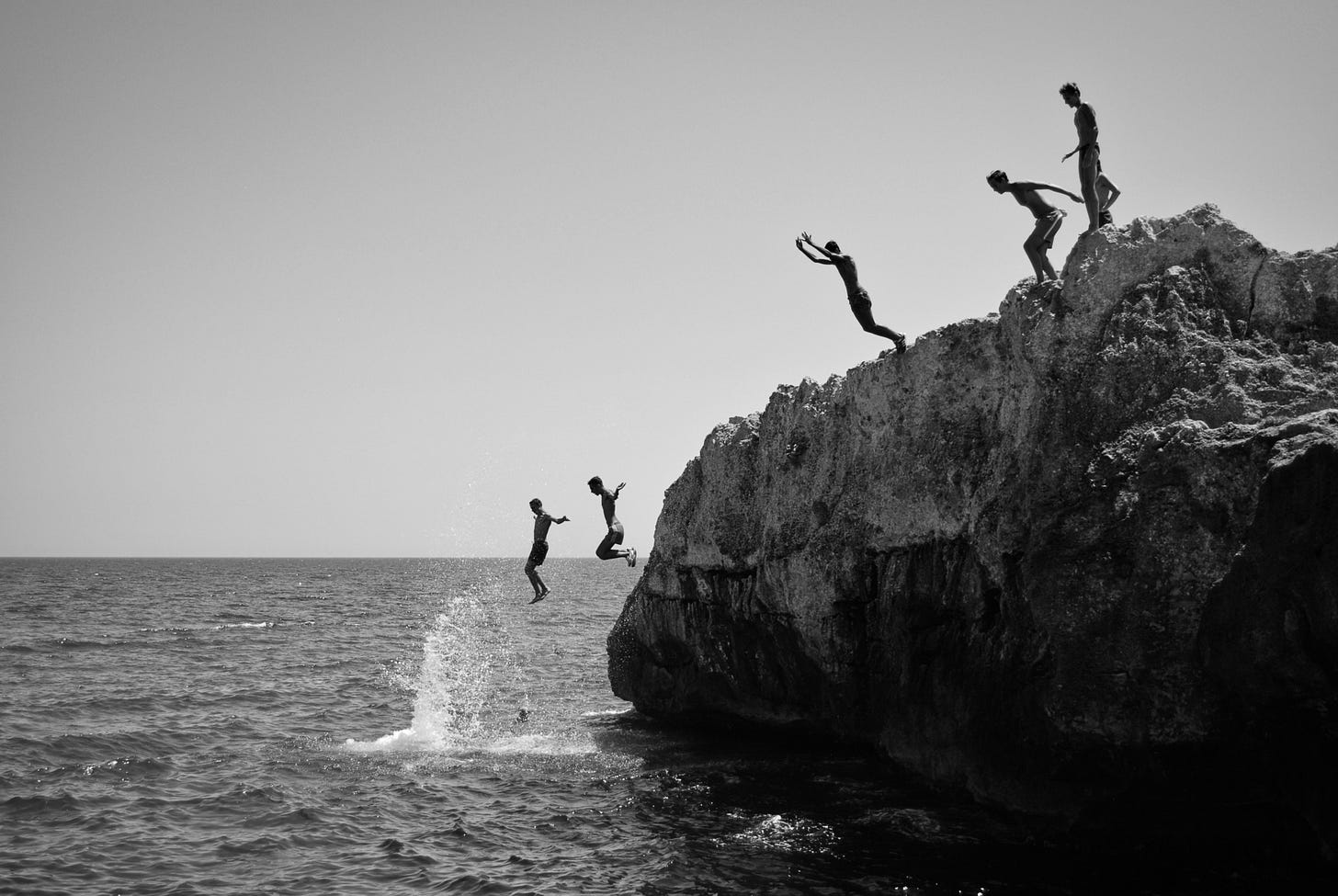


Such a joy to read the marvellous description of a family summer holiday in Puglia
Great for the many cousins to spend time together too
Just loved the splendid photos too
I absolutely loved reading this, Sheila! Today was a stressful day making me feel all keyed up but now I’m actually relaxed. I didn’t think that possible after a day like this! Thank you!! Bravissima!!!!